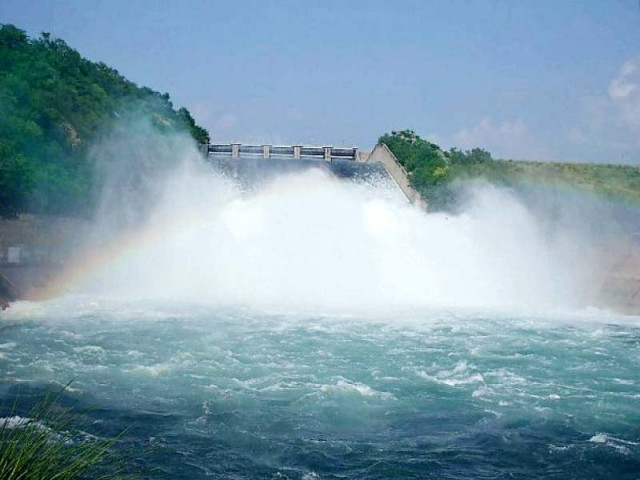WAPDA to borrow Rs244b through Sukuk
Govt refuses to give tax exemptions on these loans

Govt refuses to give tax exemptions on these loans. PHOTO: FILE
The government on Wednesday allowed the Water and Power Development Authority (Wapda) to borrow Rs244 billion from commercial banks through domestic Sukuk bonds for meeting financing needs of two under construction hydropower projects but refused to give tax exemptions on these loans.
The Economic Coordination Committee (ECC) of the Cabinet authorised Wapda to borrow Rs144 billion for the phase one of 2,160 megawatts Dasu hydropower project. The authority will also borrow Rs100 billion for meeting financing needs of 969MW Neelum Jhelum hydropower project.
WAPDA signs Rs4.8 billion contract with Chinese group
The cost of 969MW Neelum Jhelum project has shot up to Rs414 billion due to mismanagement, delays and alleged kickbacks. Compared to this, the cost of 2160MW Dasu hydro project is Rs486 billion.
Wapda will issue Sukuk bonds, which will be backed by Wapda assets and sovereign guarantees. Both the projects have huge financing needs, which the government cannot meet from its budget, said an official of the Finance Ministry.

The total cost of the Dasu hydropower project is Rs486 billion and the World Bank (WB) has already approved Rs57.3 billion concessionary loan for the project. It has also given guarantees for another Rs46 billion loan. Wapda is arranging Rs49.6 billion from its own resources while another Rs46 billion will be arranged from foreign banks under the WB guarantees.
Job security: WAPDA employees protest against privatisation
However, still there was a gap of Rs144 billion that will be filled by borrowing from domestic commercial banks. The Rs486 billion cost includes Rs106.8 billion interest during construction that Wapda will pay by charging from the consumers through electricity tariffs.
The government has preferred 4,320MW Dasu hydropower project over Diamer Bhasha Dam and Prime Minister Nawaz Sharif is keen to inaugurate the first phase before the end of his five-year term in 2018.
The ECC summary showed that the project that began last year cannot be completed before five years. Out of Rs144 billion, an amount of Rs88 billion will be raised against the federal government’s sovereign guarantees while the remaining amount will be raised against Wapda’s balance sheet.
Wapda will set up a Wapda Fourth Sukuk Company Limited for arranging funds. The ECC did not approve Wapda’s request for granting tax exemption to Sukuk Company after Federal Board of Revenue (FBR) opposed the move.
Tarbela-4 extension to be completed in June 2017, says WAPDA chief
However, Wapda Chairman Zafar Mahmood told The Express Tribune that the ECC chairman, Finance Minister Ishaq Dar, assured that the tax exemption issue will be dealt with separately. The ECC also allowed Wapda to raise Rs100 billion from commercial banks at an interest rate of about 8.3% for meeting the troubled Neelum project.
Against the revised cost of Rs414 billion, the project faces Rs158.8 billion financing gap including Rs58.8 billion foreign exchange component. For foreign loans, the government is negotiating with China’s Export-Import Bank.
The project had been approved during the first government of Benazir Bhutto in 1989 with the cost standing at Rs15.3 billion. The cost was first revised in 2002 during the General Pervez Musharraf government before Pakistan Peoples Party’s last government pushed the estimate to Rs274.9 billion in 2013.
The Neelum Jhelum project will be completed at an exorbitant price of $4.23 million per megawatt – the highest ever for any hydroelectric power project, according to project documents.
Published in The Express Tribune, November 26th, 2015.



1724319076-0/Untitled-design-(5)1724319076-0-208x130.webp)















COMMENTS
Comments are moderated and generally will be posted if they are on-topic and not abusive.
For more information, please see our Comments FAQ